The nonprofit that partnered with Microsoft to clean up the ocean is now selling $200 sunglasses made from ocean plastic

The Ocean Cleanup is a nonprofit that designs technology to clean up plastic from the ocean.
Microsoft hosted two hackathons to build a machine learning model to help identify waste.
Now the nonprofit is selling sunglasses made from ocean plastic and reinvesting proceeds into its work.
These $200 sunglasses from The Ocean Cleanup come with an interesting backstory: they're made of recycled plastic from the Great Pacific Garbage Patch, a concentration of waste that takes up 617,000 square miles in the Pacific Ocean.
Boyan Slat launched The Ocean Cleanup nonprofit in 2013, with the goal of cleaning up the Great Pacific Garbage Patch. Since then, the project has also embraced the goal of preventing new waste from entering the ocean by cleaning up rivers that carry many of the pollutants.
In 2018, The Ocean Cleanup was a participant in Microsoft's annual hackathon, where volunteers work together on moonshots to try to come up with innovative solutions. The resulting machine learning models have helped The Ocean Cleanup track plastic and other waste and informed how and where the nonprofit deploys its giant autonomous plastic collectors.
Take a look at the glasses here.
The frames are made from plastic The Ocean Cleanup recovered from the Pacific Ocean in 2019.
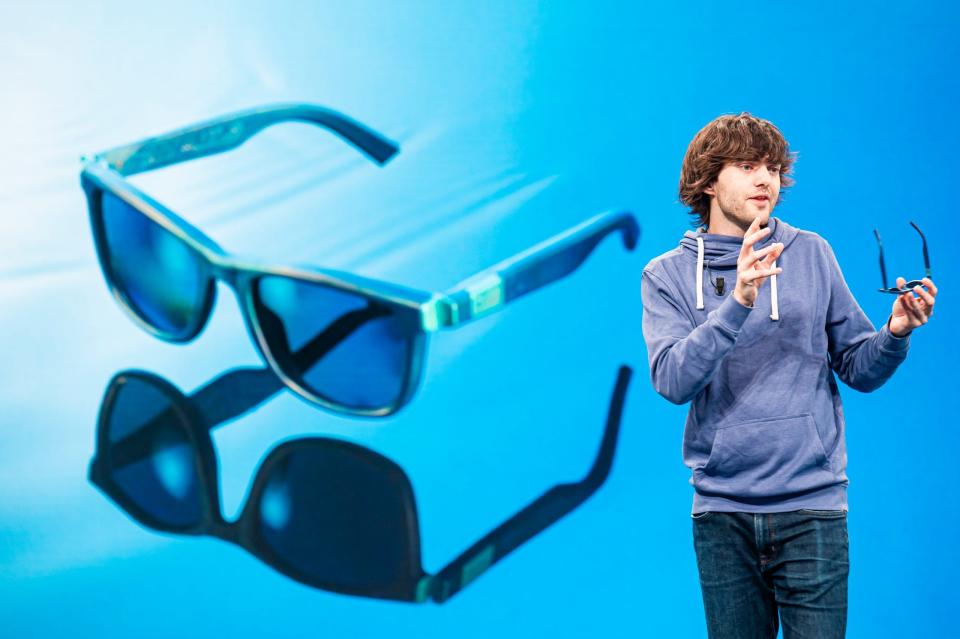
They were designed in California by Yves Béhar, and made in Italy by Safilo.
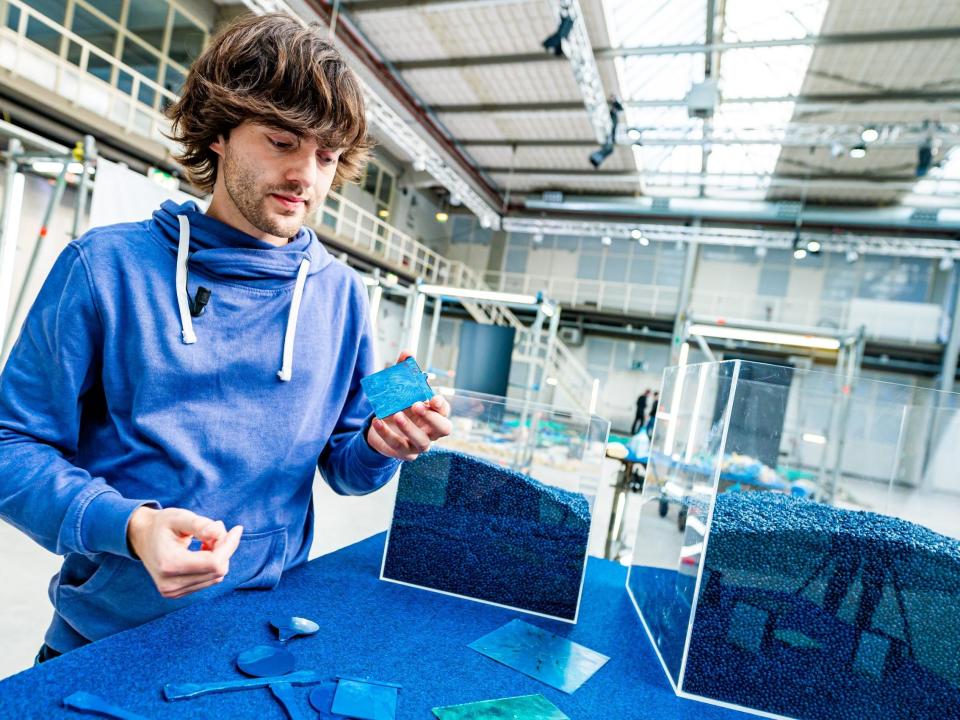
The Ocean Cleanup says that this is the first project to successfully recycle and sell plastic ocean waste on this scale before.
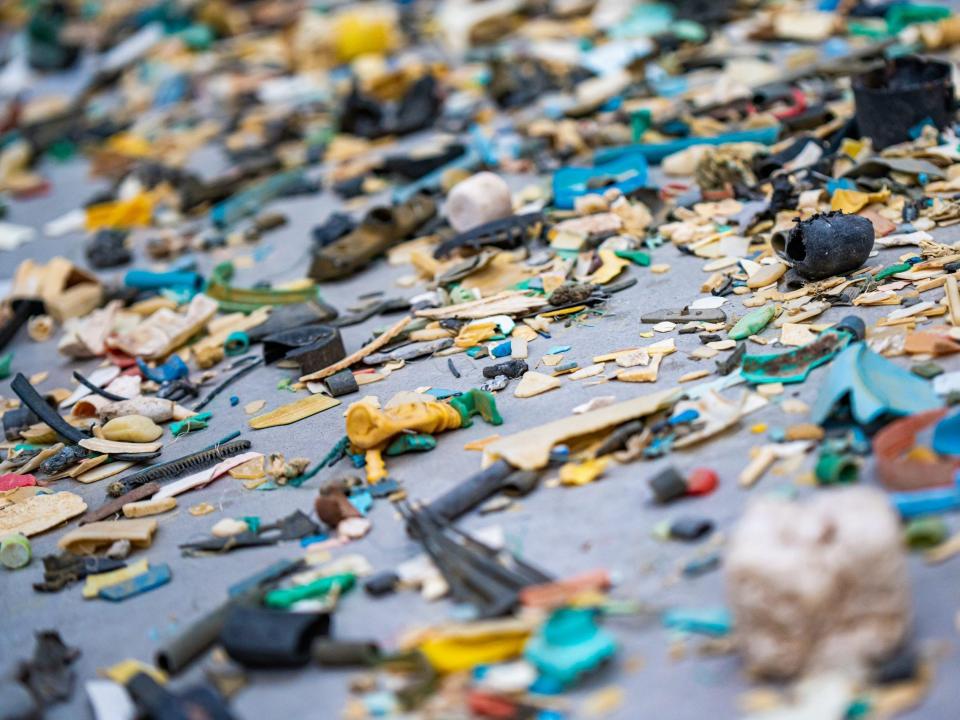
The plastic specifically comes from The Ocean Cleanup's 2019 operations.
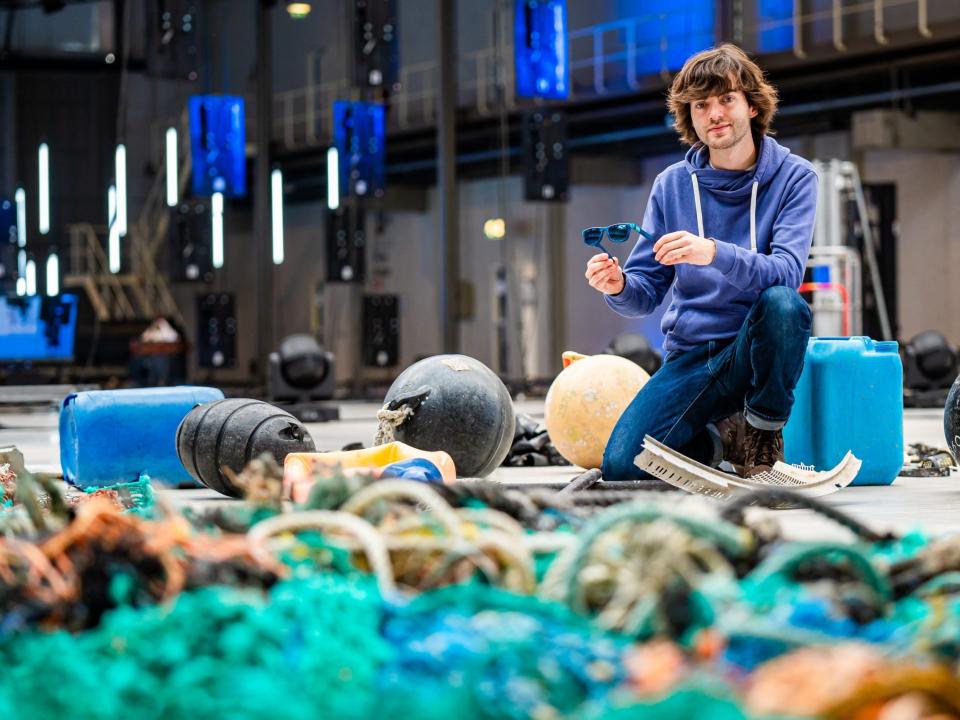
In 2019, System 001 or "Wilson" collected garbage from the Great Pacific Garbage Path.

The plastic was then processed and formed into granules.
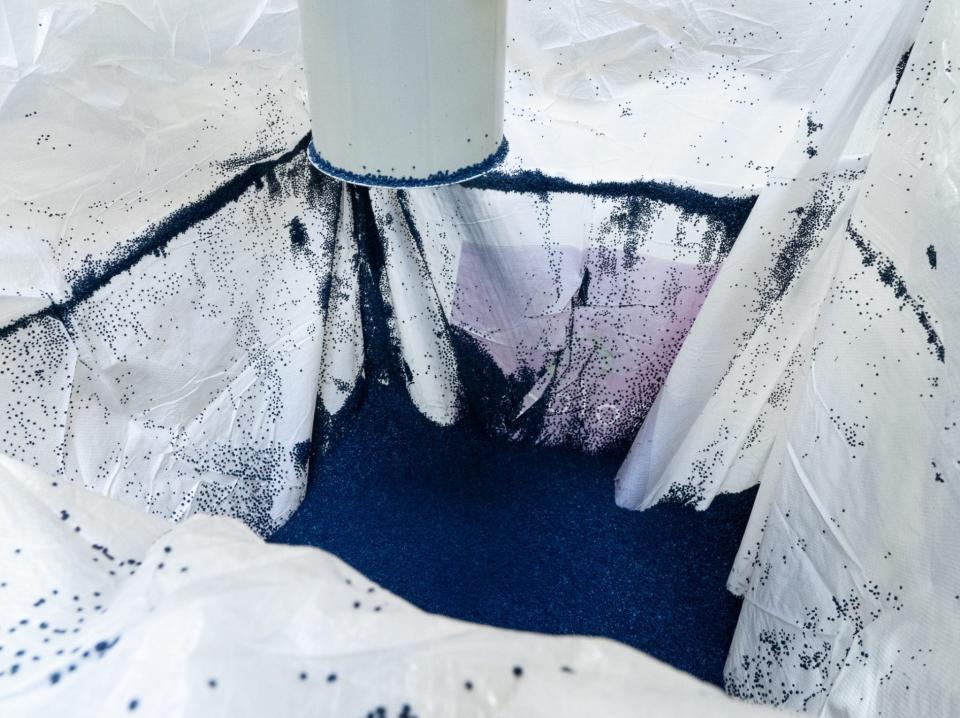
When designing the sunglasses, the creators were careful to ensure that the pieces could be easily taken apart and recycled at the end of their life.
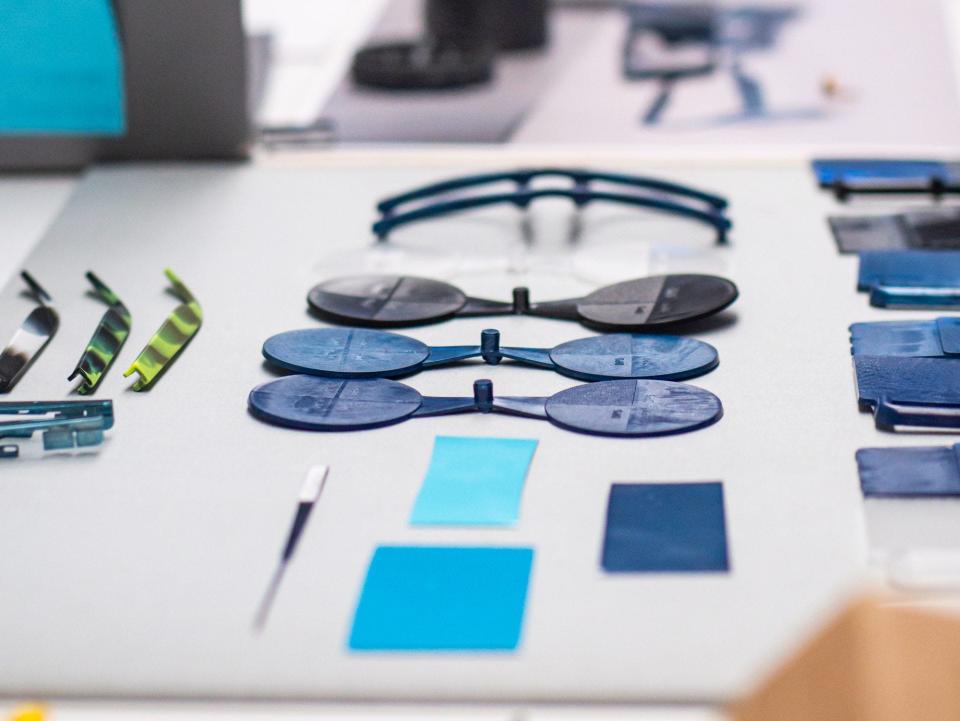
The hard-sided cylinder case is made of Wilson, the System 001 device that collected the plastic.
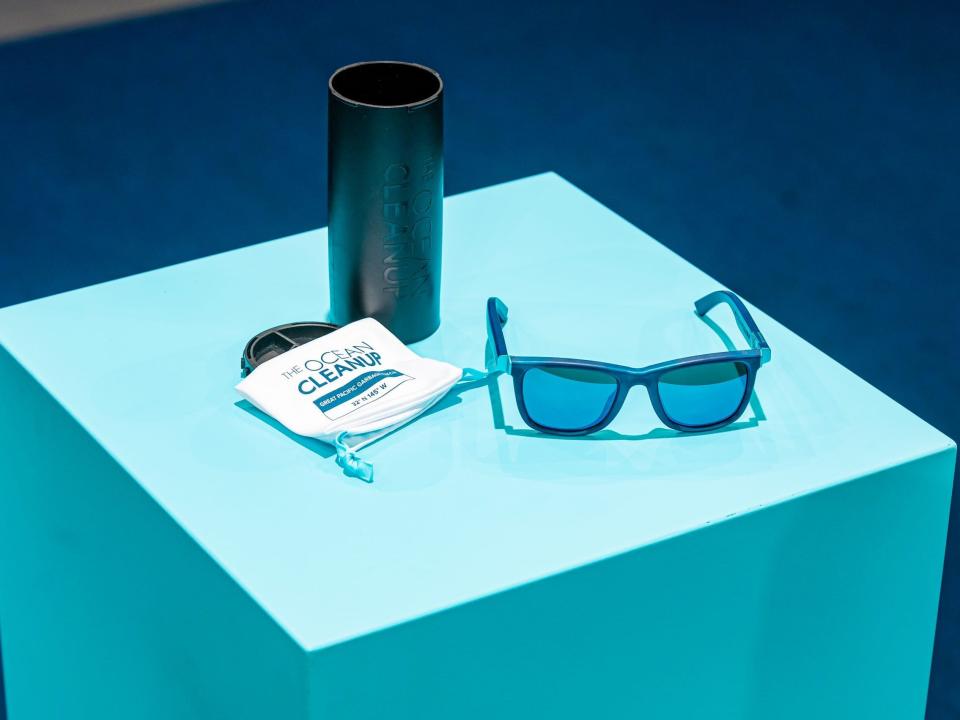
The pouch is based on the style of the bags used to transport garbage from the garbage patch.

The glasses even come with a QR code that tells a more specific story about where the plastic for that pair came from.
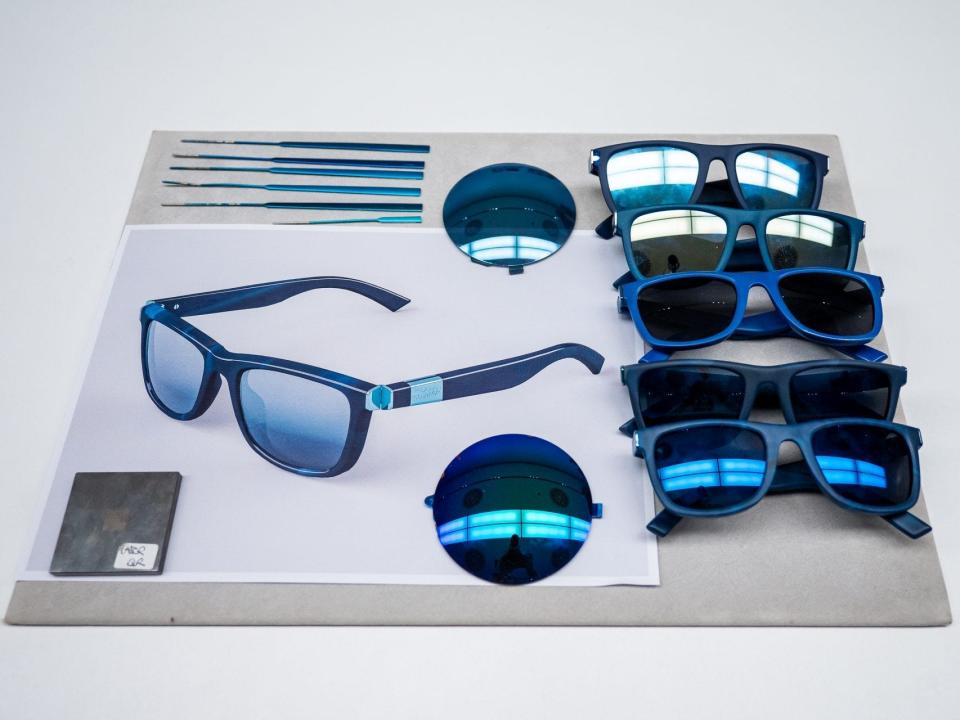
The glasses are priced at $200, and the project says that for each pair, it can clean up about 24 football fields' worth of waste.
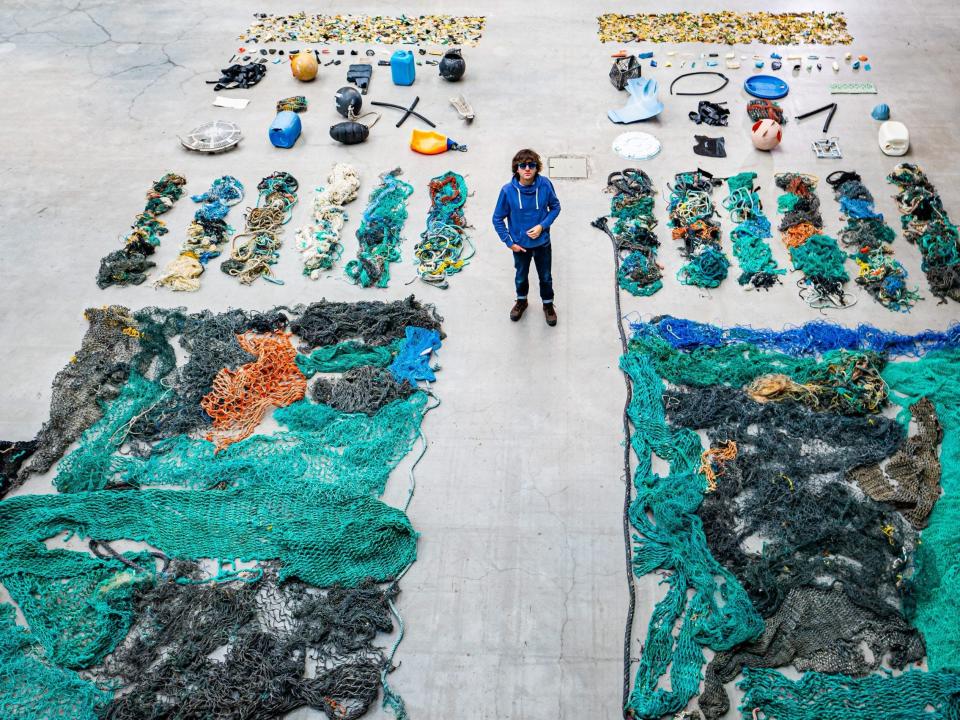
Read the original article on Business Insider

